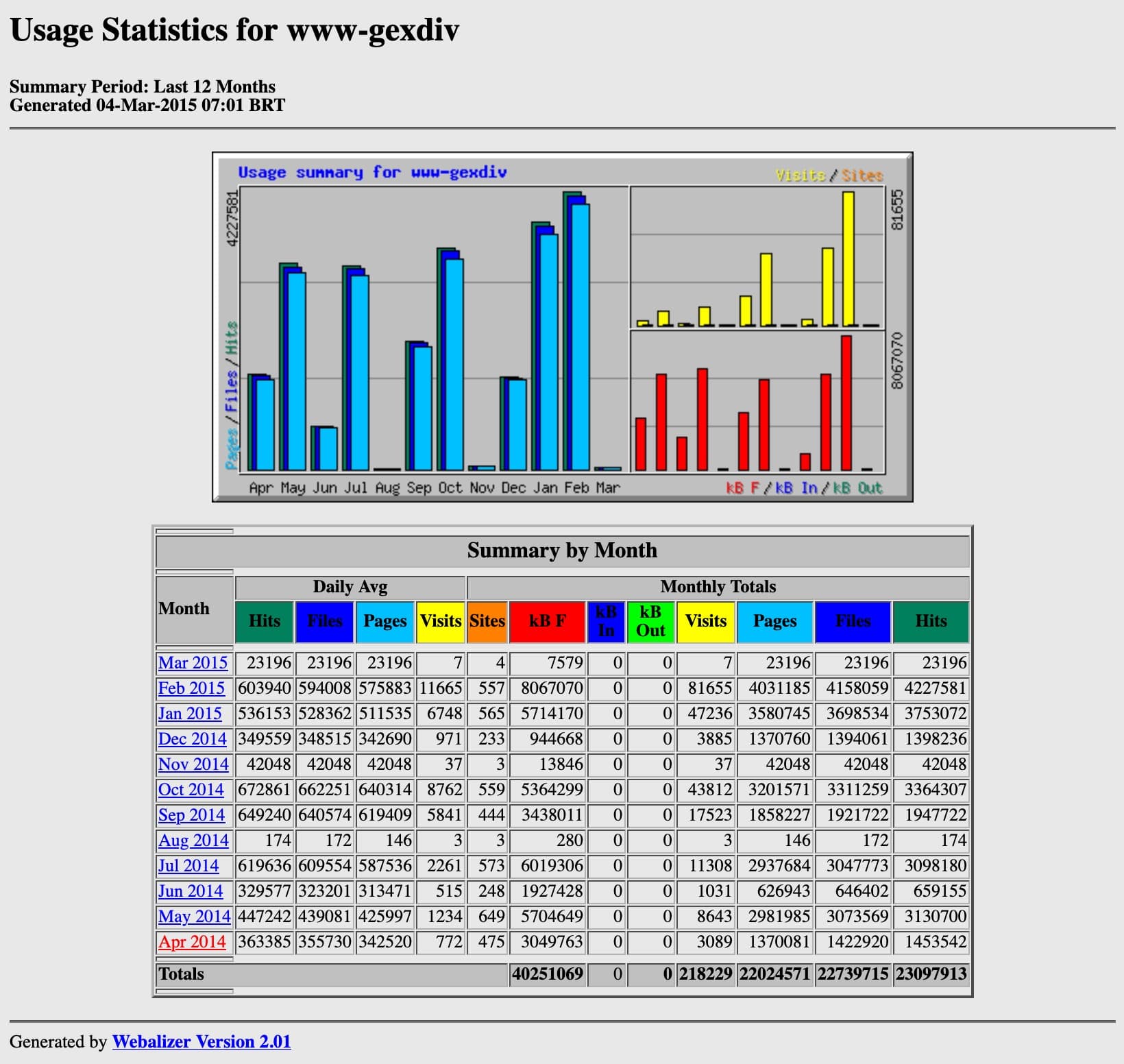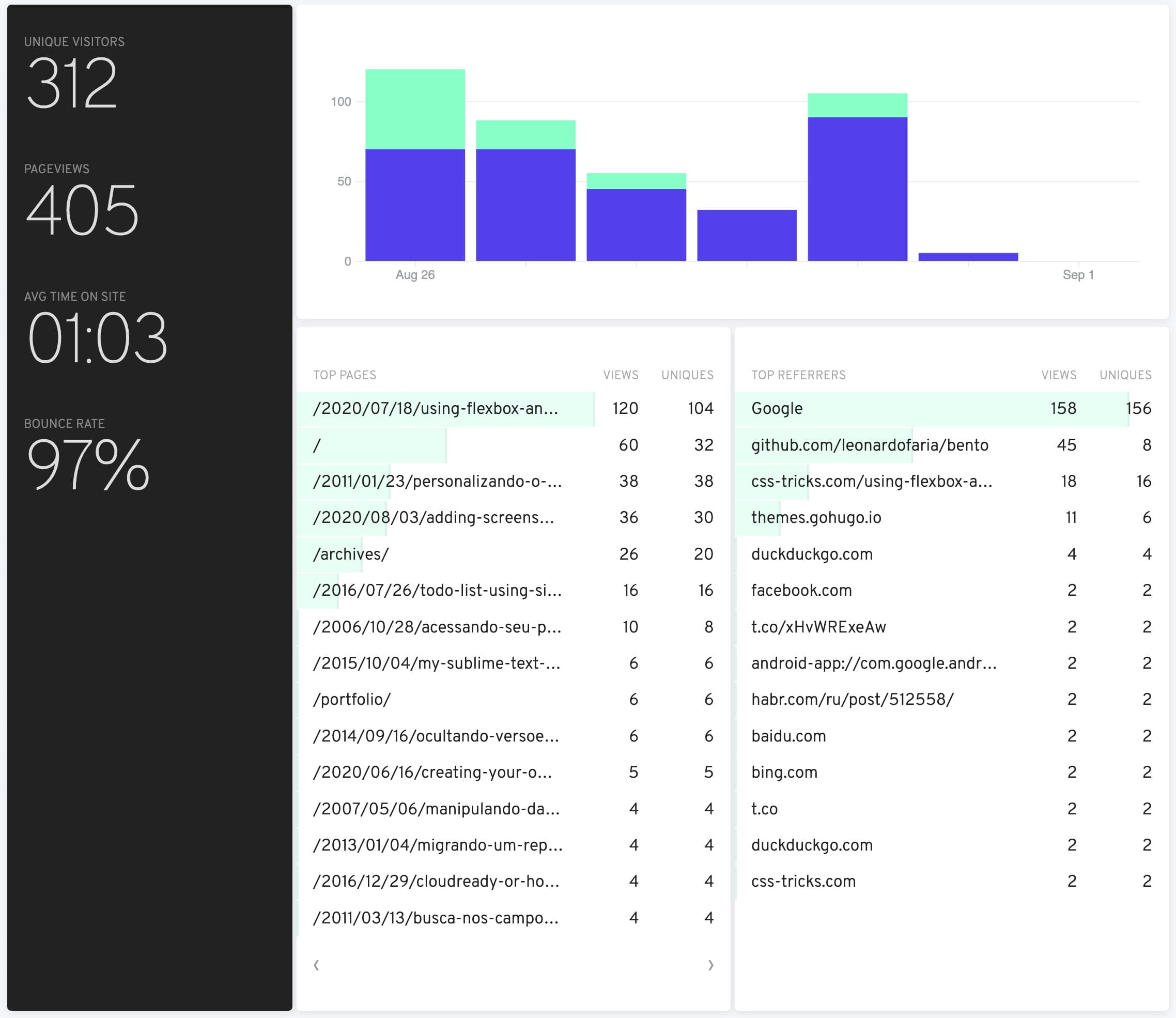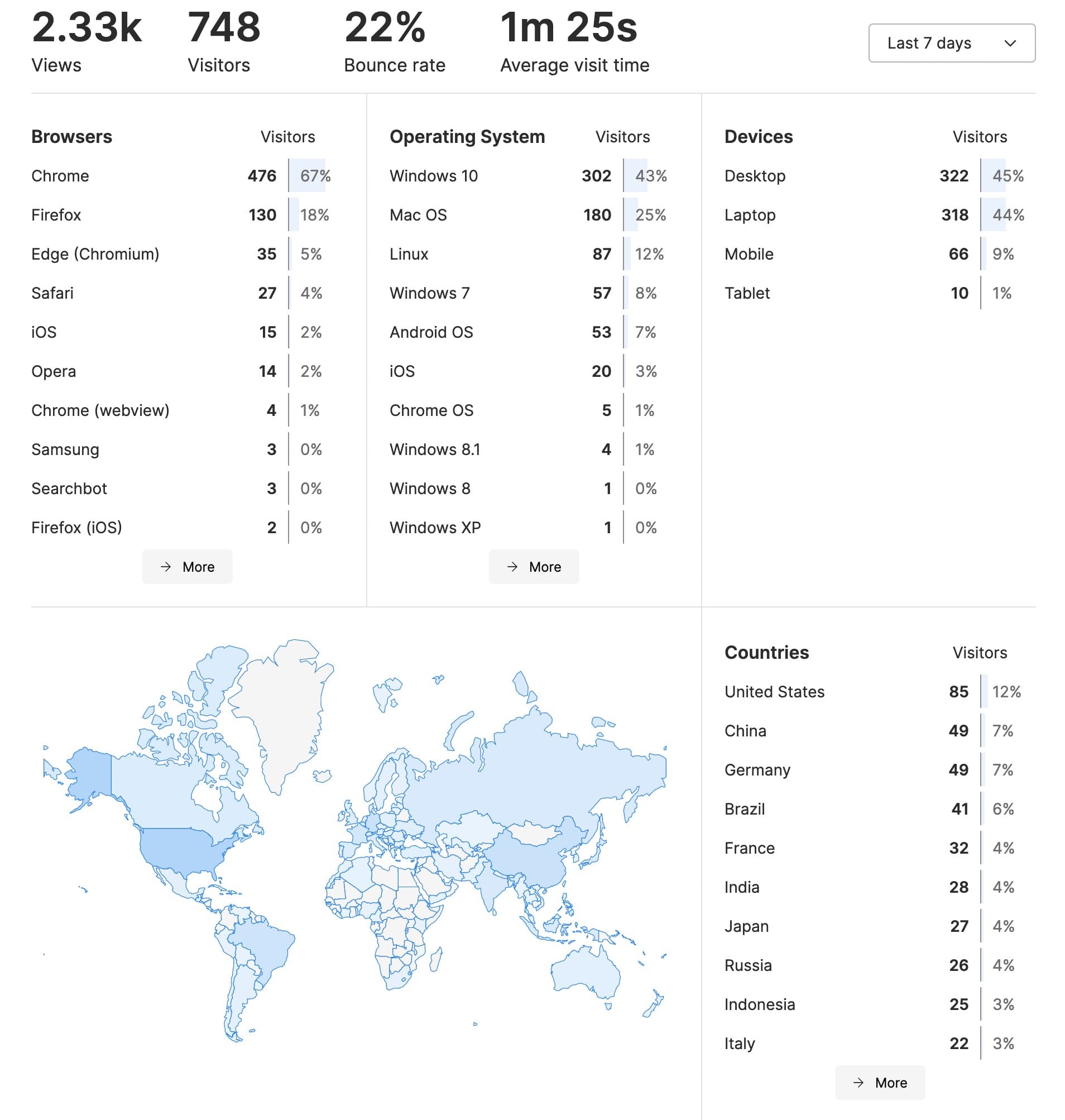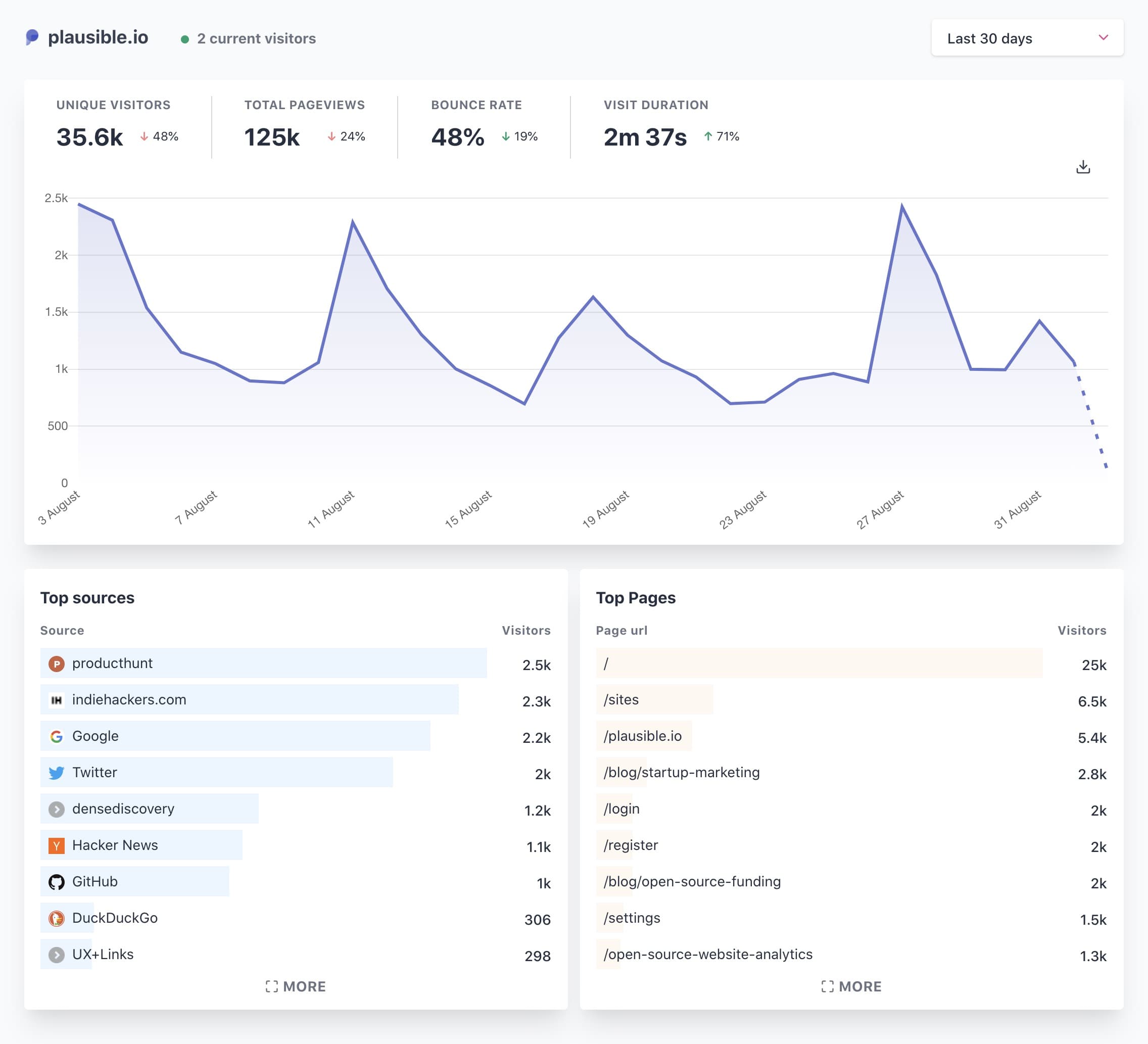By Leonardo Faria
As a content creator, I like to know the page analytics of my website.
Overall, I am curious to know how many people are reading my content, where they came from (referrer and countries), and what the most popular pages are.
20 years ago, tools like Webalizer were all that we could count on. Tools like this parsed Apache logs and created static pages with the processed data.

Another way to get page analytics was to insert an image - often invisible - on your site. By using the request headers sent to the server, people could count visitors and get a little bit more information such as origin IP, browser, and operating system. This technique is old, but services like statcounter still provide this functionality.
In 2005 Google launched Google Analytics after acquiring Urchin, a company which also analyzed server logs. Its presence has been growing since the early days and it has far more usage than any of its competitors. But, there are a few reasons why you should stop using Google Analytics on your website:
1) It is owned by Google, which uses analytics for their own benefit 2) It affects site speed by adding 45KB to page requests 3) It is too invasive, collecting lots of personal data that you don't need 4) It is blocked by many plugins and browsers, creating inaccurate data
With all this in mind, I want to share a few open source alternatives I have been looking at for the last few months.
Fathom
Fathom (demo) is a light Golang app to collect analytics.
They have different paid plans which start at $14/month. They also have a lite version that you can install on your server or Heroku for free.

The lite version uses cookies and it gives you information about unique visitors, page views, average time on site, bounce rate, top pages, and top referrers. Fathom stores data in SQLite, MySQL, or Postgresql databases.
umami
umami (demo) is a solution created with Next.js, making it very easy to deploy. In my case, used Vercel.
On top of unique visitors, page views, average time on site, bounce rate, top pages, and top referrers, umami also shows you information about countries, browsers, OS and device data.

Plausible
I think I first heard about Plausible (demo) in the "De-Google-ing your website analytics" Changelog podcast. From a product perspective, it is nice to see a public roadmap out in the wild so customers can learn what is coming next.
Their plans start at $6/month and go up according to your page views - like Fathom. They also have an alpha self-hosted option, but I didn't have a chance to test it.

Conclusion
There are alternatives out there, and you don't need to worry about a big corp looking at you or your users with these options. Each service's setup time is very similar, and once you're done, you can add multiple sites just like you would with Google Analytics.
I don't have a favorite. Feature-wise, umami provides all the basic information you would want to know for free. It's also very easy to set up on services like Vercel or Netlify.
Both Fathom and Plausible offer free trials so you can easily test their solutions before deciding.
Do you know another minimalist, open source alternative to Google Analytics? Let me know in the comments section of my blog.
If you liked this article, follow me on Twitter and GitHub.
Cover photo by Markus Winkler/Unsplash
